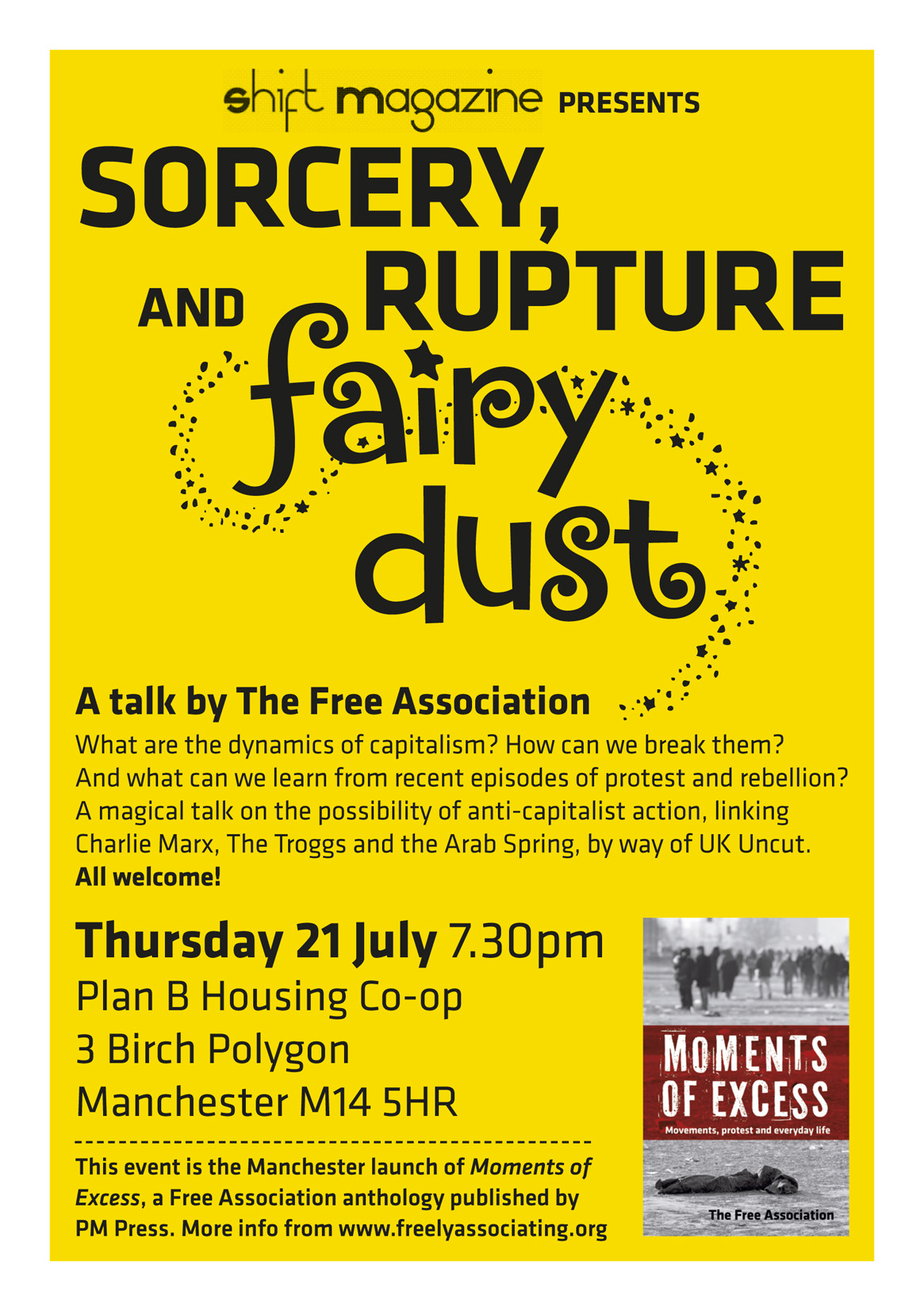The details of our Manchester launch event have now been sorted, thanks to our friends and comrades in Shift magazine.
Although it’s billed as a launch event, it’s not really about racking up book sales (!). The main purpose of talks like these is that we get the chance to engage in ongoing political discussions. One of the things we’ve been thinking about, in particular, is the relation between the shape of our politics – our ways of organising – and the wider contours of social formations. In autonomist terms, it’s a question of class composition.
This talk on sorcery, rupture and fairy dust looks at how we reproduce capitalism (or rather, capitalist social relations) behind our own backs. And we try to think about what the notion of a “real abstraction” might mean, by looking at the way capital is so slippery and elusive while its effects are horribly real.
But all this has to be put into the context of the economic crisis of 2007–8 which changed the political landscape irrevocably. There was (and is) obviously a crisis in the reproduction of capital: we pay for the crisis in the shape of wage cuts, job losses and closures, a massive reduction in public spending, and a widespread imposition of austerity. But as the effects of this crisis begin to bite, it’s also become clear that there’s a “crisis in political representation”. It’s an ugly phrase, but it’s shorthand for saying that it’s increasingly obvious to everyone that we cannot vote our way out of this mess. Even the most cynical reformist has to admit that the power of parliament (or any democratically elected sovereign body) is more limited than ever. That’s why we’ve seen a range of social movements which have pushed way beyond traditional political solutions – from Iceland in 2008–2009, to Millbank and the student movement in the UK, to the Arab Spring and the huge swell of events in Spain and Greece. These movements have their own peculiarities, but you could say they all have an intrinsic extra-parliamentary logic. In their common rejection of “politics as usual”, they echo the cry of “que se vayan todos” that rang through Argentina in 2001–2002. “All of them must go!”
So, although the imposition of austerity, by definition, means shrinking and closure, we can also see the outlines of radical possibilities in this new landscape. But there are two problems. First, despite the obvious resonances between them, the struggles that are emerging don’t seem able to cohere into a social force capable of effecting change. So while movements have emerged rapidly (and explosively), they’ve also dispersed fairly quickly — demobilised, frozen or swallowed up by traditional civil society organisations — leaving only traces of their initial potential.
Second, there’s a related impasse in terms of the way we organise as anti-capitalist militants. Existing forms of organising and activism that stem from pre-crisis days don’t seem up to exploring the possibilities of this new landscape. And by “existing forms of organising and activism” I really mean all forms — from Leninist parties and national federations to affinity groups and anti-hierarchical networks. In the face of some of the stuff that’s been going on, even the most progressive and liberating of these seem wooden or flat-footed.
Can we find a new political approach adequate to the moment? Is there the possibility of some sort of re-groupment? Or do we need “just one more push, comrades”? Get yourself along to Manchester on 21 July and help find out…


2 Comments